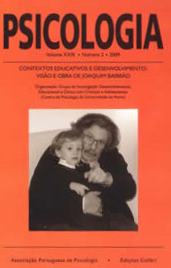Risk factors: The multiplicity of family variables in child development
DOI:
https://doi.org/10.17575/rpsicol.v23i2.335Keywords:
-Abstract
The present study intends to analyze the effects of family multiple risk factors on preschool children’s cognitive and social development. Several studies have shown that children’s skills are associated with family characteristics, despite the controversy about whether the most influential variables are of family specific characteristics or rather that developmental outcomes lie on the combination of different factors, no single factor having sufficient explanatory power. The Project Contexts and Transition (Contextos e Transição) selected children from 60 preschools of the city of Porto. The literacy, numeracy and social skills of 95 five-year-old children were assessed. Family risk indicators were also collected. The analyses confirmed that as the number of risk factors increased, children's cognitive performance decreased. The results also showed that the power of a single factor or set of factors lies on their accumulation in children’s lives.


